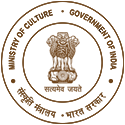Mediation is a process of negotiation which includes a third party. This third party could be a professional mediator, it could be another person, it could be a group of people or even an institution which is involved in such a dispute. Mediation can happen both at personal level as well as institutional level. This way is shaped by one’s own philosophy, educational background and how one has been formed into a mediator. In order to be a mediator, one needs to let go of many unwanted things in this process.
Gandhi Smriti and Darshan Samiti organised a five-part series of “Dialogue on Mediation” with both national and international experts. Dr. Vedabhyas Kundu, Programme Officer, GSDS and Ms. Mansi Sharma from Punjab University took part in the discussion and also moderated the session.
• Series I – Specialist in Alternative Mechanisms for Conflict Resolution from Peru, Mr. Gustavo Anay Centeno and TEDx Speaker and expert on Peace and Conflict Studies, Ms. Elizabeth Katherine Gararra from Japan were the speakers on February 6, 2021.
Sharing their perspectives, Gustavo said: “As a specialist in the field of mediation I have travelled to different parts of Latin America and I have observed that in order to mediate you don’t necessarily need to be a lawyer or be within the legal field”, adding, “Mediators are the middle part and with active listening they can really get to understand people’s needs at much deeper level. A good mediator is one that really understands the social context and can get involved with the issues at a personal level”.
Elizabeth believes that self-awareness is often overlooked. A mediator should practice self-awareness every day. Polishing skill sets is important for both young and expert mediators. Discussing challenges with colleagues, practicing co-mediation, taking feedback can come in handy.
Mediation calls for someone who understands the culture of peace. Social and economic differences need to be examined carefully. The job of a mediator is to make people part of the process. S/He should have an understanding of the body language as well as good listening skills.
• Series II – Executive Director Asia Pacific Centre for Arbitration and Mediation, Delhi, Ms. Iram Majid during her interaction on February 8, 2021 said that “litigation is about who is right whereas mediation is about what is right. Mediation is a way of life. It is about human-human connection and therefore discourages evaluation. The purpose of mediation is to find underlying interests behind the issues. People have different perceptions, emotions and temperatures/ temperaments. Mediation is about bridging these gaps and bringing them on the same page. With effective communication a mediator can navigate issues and turn them into opportunities for growth of the parties”.
She further said, “In a mediation room there are three voices/ echoes, the mediator’s voice is a connecting voice”, adding, “A mediator therefore needs to understand both verbal and nonverbal communication of parties. Curiosity to understand must be accompanied with compassion and empathy”.
• Series III – Advocate, Mediator, Conciliator, Golfer and Peacemaker, Shri Vikram Singh took part on Series III on February 10, 2021 at the dialogue. Speaking on the occasion, he said, “Dispute resolution is best handled within parties themselves. Ego, miscommunication and other such things hamper a dialogue, here mediation comes into play. Mediation is all about conversations centred around circumstances. It is an informal process which can happen anywhere say road, school, park. Mediators need not be trained people but people with mediation mindset. You cannot train people into mediation. A mediator needs to have an inbuilt good intention”, adding, “A mediator should never assume that a person knows everything and should convey meanings clearly. Any communication is nonviolent if the intention is good”.
• Series IV – Internationally acclaimed speaker on ‘mediation’ and body language, Simon Howden from Australia spoke on a variety of issues on mediation on February 11, 2021, in a session that was based on question and answers and reflections on day-to-day activities. He said, “The mediator’s responsibility is to make safe space where people feel that they can deliver and communicate. People often get over educated. Education is merely a tool. It gives you knowledge, but that knowledge needs to be put into practice. Theory alone does no good. It is the practice that makes a master mediator even if less theorized,” adding, “The mediator has a neutral role to assist working towards a mutual agreement. S/He should not give advice or direction. Also, confidentiality of the conversation should be strictly maintained. Mutual respect is another essential element of the process”. He also pointed that “Mediators have to be prepared”.
• Series V – Another session on February 11, 2021 was held with Ms. Roberta Wall, a mediator and a coach in nonviolent communication and conflict resolution, where she spoke on the positive role of a mediator in conflict resolution. She further said that at any stage a mediator does not have to know it all. The World today is full of conflict everywhere and mediators must desire to be peaceful communicators”.
SERIES ON DIALOGUE ON MEDIATION
Webinar












